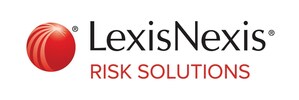ATLANTA, Dec. 3, 2019 /PRNewswire/ -- A new study released today by LexisNexis® Risk Solutions found that the majority of the respondents (62%) work for insurance carriers that have already adopted artificial intelligence (AI) and machine learning (ML) initiatives and that an overwhelming majority (75%) believe AI and ML can provide carriers with a competitive advantage through better decision-making.
While carriers are generally positive about their use of Artificial Intelligence and Machine Learning (AI/ML), implementation does come with its own set of challenges surrounding staffing, data and compliance, which the study also identified as the biggest obstacles carriers face in order to take full advantage of AI /ML. The survey was completed by more than 300 insurance professionals in data science, analytics, actuarial, technology, underwriting, product management and claims roles, at the top 100 U.S. insurers across the auto, home, life and commercial markets.
"Insurers are grappling with unprecedented changes, whether it's how digital impacts customer expectations, blurring industry lines that foster co-opetition and new business models, or increasing regulatory requirements around data privacy and security," said John Beal, Senior Vice President, Data Science, LexisNexis Risk Solutions. "A key lesson from the study is that carriers must invest in capabilities that will help them thrive in a faster-paced, data-driven market. AI/ML capabilities can give them the real, measurable lift they need to get ahead."
To that end, the study found that early Adopters of AI /ML are already seeing significant benefits such as faster claims settlement (88%), more targeted cross and upselling (88%), improved fraud detection (87%), and better risk scoring (85%).
Adoption Patterns
The survey revealed that respondents fell into two distinct categories related to their AI/ML usage:
- Adopters – the 62% who are working for carriers that are already applying, piloting or planning AI/ML initiatives
- Non-Adopters – the 38% who are working for carriers that are not even in the planning stages of developing AI/ML initiatives.
Among the respondents representing Adopters, most come from large carriers, comprising 82% of the top 20 U.S. insurers. However, according to respondents there is also significant AI/ ML adoption across the remaining top 100 carriers, with 62% adoption amongst the top 21–50 carriers and 51% adoption amongst the top 50–100 insurance companies.
The Challenges Ahead
While insurance carriers are largely positive about the value of their AI /ML initiatives, the study identified the challenges that they will need to overcome:
Staffing Challenges
Staffing pressures concerning knowledge and talent for AI /ML application is a major concern. Half of the respondents (49%) said that AI /ML implementation have already impacted their staffing plans today. Carriers that are planning to increase staff to address the need for new AI /ML approaches are trying to fulfill two needs: talent (42%) and data science capabilities (58%).
"Insurers need people who can understand the inputs and outputs of the applications, and who can explain them to the business," said Beal. "They need knowledge managers who can speak in both technical and non-technical languages and link the dialogue between parties."
Data Challenges
Access to high-quality, trustworthy data is another key concern. The three main issues with data that survey respondents mentioned include: their ability to manage the volume and security of the data; linking and normalizing data across different data sources; and ensuring access to the data. Adopters clearly see the value of third-party data, as a majority of the adopters (82%) say their organizations have or will buy external data for their AI /ML initiatives.
Compliance and Regulatory Challenges
The third set of hurdles includes compliance and regulatory challenges with insurers' use of AI /ML. Adopters worry that regulators and legal bodies may not understand AI /ML applications and thus could possibly block or limit them. Three-quarters (74%) of adopters also have concerns about data privacy, security and ownership issues, anticipating increased regulatory scrutiny as more data sources are accessed and modeled.
A Way Forward
While AI /ML is already delivering benefits for insurance carriers, most carriers need to find a technology partner that can help maximize their AI /ML initiatives with demonstrated expertise in: building models that leverage advanced analytics; managing, normalizing and analyzing increasing volumes of data; and a deep understanding of the insurance industry, including the regulatory environment.
As insurance carriers prepare for the dawn of a new decade and AI /ML adoption grows, only those insurers who fully embrace and implement AI /ML capabilities now will be able to yield that competitive advantage.
For additional insights and data about AI /Ml and our study, please visit the State of Artificial Intelligence and Machine Learning in the Insurance Industry white paper.
About LexisNexis Risk Solutions
LexisNexis Risk Solutions harnesses the power of data and advanced analytics to provide insights that help businesses and governmental entities reduce risk and improve decisions to benefit people around the globe. We provide data and technology solutions for a wide range of industries including insurance, financial services, healthcare and government. Headquartered in metro Atlanta, Georgia, we have offices throughout the world and are part of RELX (LSE: REL/NYSE: RELX), a global provider of information and analytics for professional and business customers across industries. For more information, please visit www.risk.lexisnexis.com and www.relx.com.
Media Contacts:
Rocio Rivera
LexisNexis Risk Solutions
Phone: +1.678.694.2338
[email protected]
Mollie Holman
Brodeur Partners for LexisNexis Risk Solutions
Phone: +1.646.746.5611
[email protected]
SOURCE LexisNexis Risk Solutions

Related Links
WANT YOUR COMPANY'S NEWS FEATURED ON PRNEWSWIRE.COM?
Newsrooms &
Influencers
Digital Media
Outlets
Journalists
Opted In





Share this article